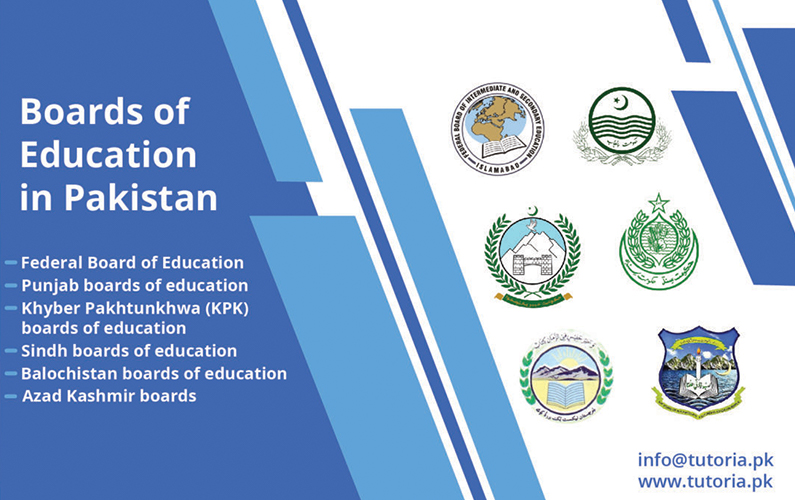Choosing the right education board in Pakistan is a crucial decision for students and parents alike. With several boards offering different syllabi, grading systems, and academic approaches, the big question remains: Which board is best in Pakistan?
Top Education Boards in Pakistan
There are several boards that regulate matriculation (9th & 10th) and intermediate (11th & 12th) exams. Here are the most prominent ones:
- Federal Board of Intermediate and Secondary Education (FBISE)
- Punjab Boards (BISE Lahore, Rawalpindi, Faisalabad, etc.)
- Sindh Boards (BISE Karachi, Hyderabad, etc.)
- Khyber Pakhtunkhwa Boards (BISE Peshawar, Abbottabad, etc.)
- Cambridge International Examinations (O/A Levels)
- Aga Khan University Examination Board (AKU-EB)
Let’s evaluate each board based on syllabus quality, exam patterns, international recognition, and overall student performance.
1. Federal Board (FBISE)
FBISE is known for its standardized and balanced syllabus, covering all federal government schools and many private institutions across Pakistan.
Why choose FBISE?
- Uniformity across Pakistan and abroad (many foreign schools follow FBISE)
- Transparent paper checking system
- Focus on conceptual understanding
- Preferred by military and federal employees’ children
Best for: Consistency and nationwide acceptance
2. Punjab Boards (BISE Lahore and others)
Punjab has the largest number of students enrolled under BISE Lahore, Rawalpindi, Faisalabad, and others.
Pros:
- Easy access to schools and exam centers
- Curriculum aligned with Punjab Textbook Board
- Strong support system for teachers and students
Cons:
- Often criticized for rote learning
- Marking may vary between cities
Best for: Accessibility and local recognition within Punjab
3. Sindh Boards
Sindh’s boards, especially BISE Karachi, serve a large population but face criticism for outdated content and inconsistent checking.
Pros:
- Local language and cultural context
- Broad school network
Cons:
- Issues in transparency
- Frequent exam delays
Best for: Students living in Sindh with limited access to federal institutions
4. Khyber Pakhtunkhwa Boards
Boards like BISE Peshawar offer education under provincial guidelines.
Pros:
- Curriculum aligned with local needs
- Government support for improvement
Cons:
- Less exposure to competitive exams
- Curriculum gaps compared to FBISE
Best for: Students aiming for provincial universities
5. Cambridge International (O/A Levels)
Internationally recognized, O/A Levels follow the British education system and are offered in many private schools.
Why choose Cambridge?
- Concept-based learning
- Global acceptance for scholarships and foreign universities
- English-medium curriculum
Downsides:
- Expensive tuition and exam fees
- Limited to urban elite
Best for: Students aiming to study abroad or in top-tier local universities like LUMS, IBA, and NUST
6. Aga Khan Board (AKU-EB)
AKU-EB is a private board that emphasizes analytical and critical thinking.
Highlights:
- Modern curriculum
- Digital assessments
- Fair and transparent system
Challenges:
- Not available in all regions
- Less popular than FBISE or Punjab Boards
Best for: Progressive learning with modern tools
Final Verdict: Which Board is Best in Pakistan?
The answer depends on your academic goals:
- For international education: Go for Cambridge International (O/A Levels)
- For balanced and concept-based local education: Choose FBISE
- For cost-effective and accessible education in Punjab: Prefer Punjab Boards
- For progressive, modern education in limited regions: Try Aga Khan Board
If you’re wondering which board is best in Pakistan, there’s no one-size-fits-all answer. Each board has strengths and weaknesses, and your choice should be based on your location, academic goals, financial ability, and future plans.
Key Takeaways:
- FBISE is ideal for balanced, nationwide education
- Punjab Boards are practical for most local students
- O/A Levels offer international opportunities
- AKU-EB promotes modern learning
Read More: Sindh Government Launches Stipend Scheme for Schoolgirls









